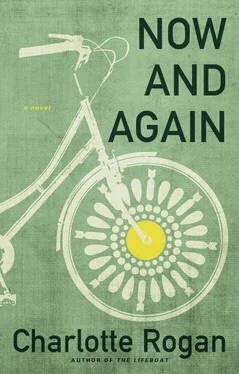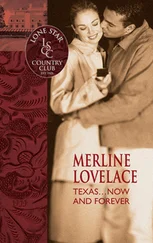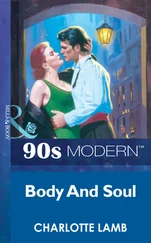“Nah,” said Will. “We can live without a telephone, and if the truck makes a little noise, so what?”
“Turn off the lights,” Lyle said to Will when he went off to bed. As he said it, he remembered all of the things Maggie had been reminding him about in the weeks before she left. Had she been planning on going to Phoenix all along? “And we don’t need the heat on high either,” he added. “Let’s use extra blankets instead.” But Will just sank farther into the couch cushions and didn’t answer. He didn’t even turn his head.
9.10 Will
The day after Will visited the recruiting station, he called his mother and told her he was following his dream just the way she was following hers.
“Will!” cried Maggie. “I’m coming home on the next bus.”
“I won’t be here,” said Will, misrepresenting his departure date. Then he relented and said, “I’m proud of you, Mom. At least you’re doing something you believe in. We can compare notes on our adventures someday. In the meantime, I’ll be sure to write.”
That evening he and Tula sat in their usual spot under the apple trees and had their first beer together. A few snowflakes sifted through the lacy branches as they laughed about how beer was a gateway drug and also about how straitlaced they’d always been.
“Every class has rebels and good kids,” said Tula. “I guess we’re somewhere in between.”
“We don’t fit in at all,” said Will. It was something he kept realizing and then forgetting again. He thought being straitlaced was generally a good thing, but he also didn’t want to be a stick in the mud. “Of course, I’ll have to follow the rules in the army, but I won’t follow them blindly. I mean, I’m going to think for myself.” The beer had loosened the gear that usually got in the way of speaking his mind, and he added, “Moderation — that’s the key, isn’t it?”
The beer also made him feel good. Tula said it made her feel good too. Good and also a little reckless, a little like having a second beer. “Was there a reason we said we were only going to have one?” she asked. “It seems kind of arbitrary, but if there was a reason for it…”
“It was kind of an assumption — I don’t really know.”
“I can see how you might say you’re not going to have any. That would be a line worth drawing, but I can’t really see the difference between one and two, can you?”
“Two never killed anybody.”
“That’s what I think. I think two would be perfectly okay.”
“It’s probably not even a good idea to stop at one,” said Will. “If a thing’s worth doing, it’s worth doing well.”
But there had only been two beers in the Rayburns’ refrigerator, and it wasn’t easy to figure out how to get more. “Everyone in town knows us,” said Will. “If we want to buy beer, we have to drive to Glorietta, which means we have to get the truck from my dad, who is probably at the Merry Maid…”
“Drinking beer,” Tula finished for him.
“Exactly right,” said Will.
The sky had been leaden and threatening all day, and now it started to snow for real, which only seemed to confirm that the world around them was changing and they would have to change too — either with it or in opposition. Either one would be good. They debated whether conformity was preferable to rebellion, and for once, they both agreed. It was exhilarating to run along the icy road in the knowledge that they had been marginalized by society and that, being excluded, they might not be bound by its laws at all. They whooped and hollered as they plunged down the hill past the athletic fields and through a dark stand of cottonwood trees to where a footpath ran beside the frozen slick of Ash Creek. They stopped for a long kiss, and Will located, deep within his alienation, a sense of belonging and completion.
The streets were unplowed and the snow was piling up, concealing the familiar. Then Tula tugged at him with her mittened hand and they were running again, past the turnoff to the Ash Creek settlement where Tula lived and past the municipal recreation center before heading up the slope to the Super Saver parking lot and down the street to where Lyle’s truck was parked next to an empty lot where the foundation for a new office complex had just been poured.
“Go inside and ask him for the keys,” said Will. “Tell him the truck is in the way of the snowplow and that you’ll move it for him.”
“I can’t say that,” said Tula. “It’s a lie!”
“You’d be protecting him,” said Will. “If he doesn’t know our plan, he can’t be held accountable for what we do. He can’t be pressured into revealing it to anyone.”
“Pressured by whom?” asked Tula.
“Whoever’s out to get us,” said Will, winking like a conspirator.
Tula blinked at him, her eyelashes heavy with snowflakes, and just when he was going to grab her again, right there on Main Street where anyone could see them, she pushed him away and sashayed into the bar, leaving him to stamp his feet on the icy pavement, trying to stay warm. After what seemed like a long time, Tula emerged, swinging her hips like a cheerleader and dangling the keys triumphantly above her head.
Will hadn’t expected there would be side effects to drinking. He hadn’t expected that he’d want to kiss Tula’s neck and her belly button or that he wouldn’t want to stop there. He hadn’t expected that driving the truck would become increasingly hazardous or that it would get stuck in a snowdrift driving back from Glorietta or that he’d push Tula into the drift instead of getting it unstuck or that he’d dive in after her when someone in a passing car stuck his head out the window and shouted, “Get a room!”
“We’ve got the truck, don’t we?” he said to Tula. “It’s even better than a room.”
“No, no, I can’t,” said Tula. She looked sorrowful and frail, shivering in her too-big parka. He wanted to protect her, so he put an arm around her shoulders, but instead of snuggling in close to him, she moved away. Tiny snowflakes were drifting down, and the light from a streetlamp made a halo around her head.
“Why not?” asked Will. Something had changed for him; or, rather, many things had changed. He was motherless. He had joined the army. He had a girlfriend. And pretty soon he’d be quitting school. He was giving up a lot, so it seemed right that Tula give up something too. Not that she’d really be giving something up — they’d both be gaining. He said the word “sacrifice,” but it wasn’t exactly what he meant. Apparently it was the wrong word to use because suddenly, Tula no longer seemed frail. Will suspected she was even angry, but the alcohol was affecting his perceptions and he couldn’t be sure.
“Give up. Abandon. Kill,” said Tula. “What kind of sacrifice are we talking about?”
Will was confused as to whether having sex or not having it entailed sacrifice and whether sacrifice was a good thing or a bad one, but before he could ask, Tula stepped beyond the circle of lamplight and faded away behind a veil of snowflakes, leaving him to ponder the effects of the beer, which no longer made him feel happy and light-headed, but leaden and angry and thick. He ran partway down the road in the direction she had gone, skidding and panicked and shouting for her to come back. Now and then a car pushed past him, its taillights smearing in the snowy dark. Then there was only silence and a small but growing blister of loneliness and desperation. He was walking back to the truck when an SUV stopped and the driver helped him push the truck out of the snow.
“Christ almighty, son,” said the driver. “You’re already at the Loop Road. Your girlfriend probably just walked on home. You must have really pissed her off.”
Читать дальше












